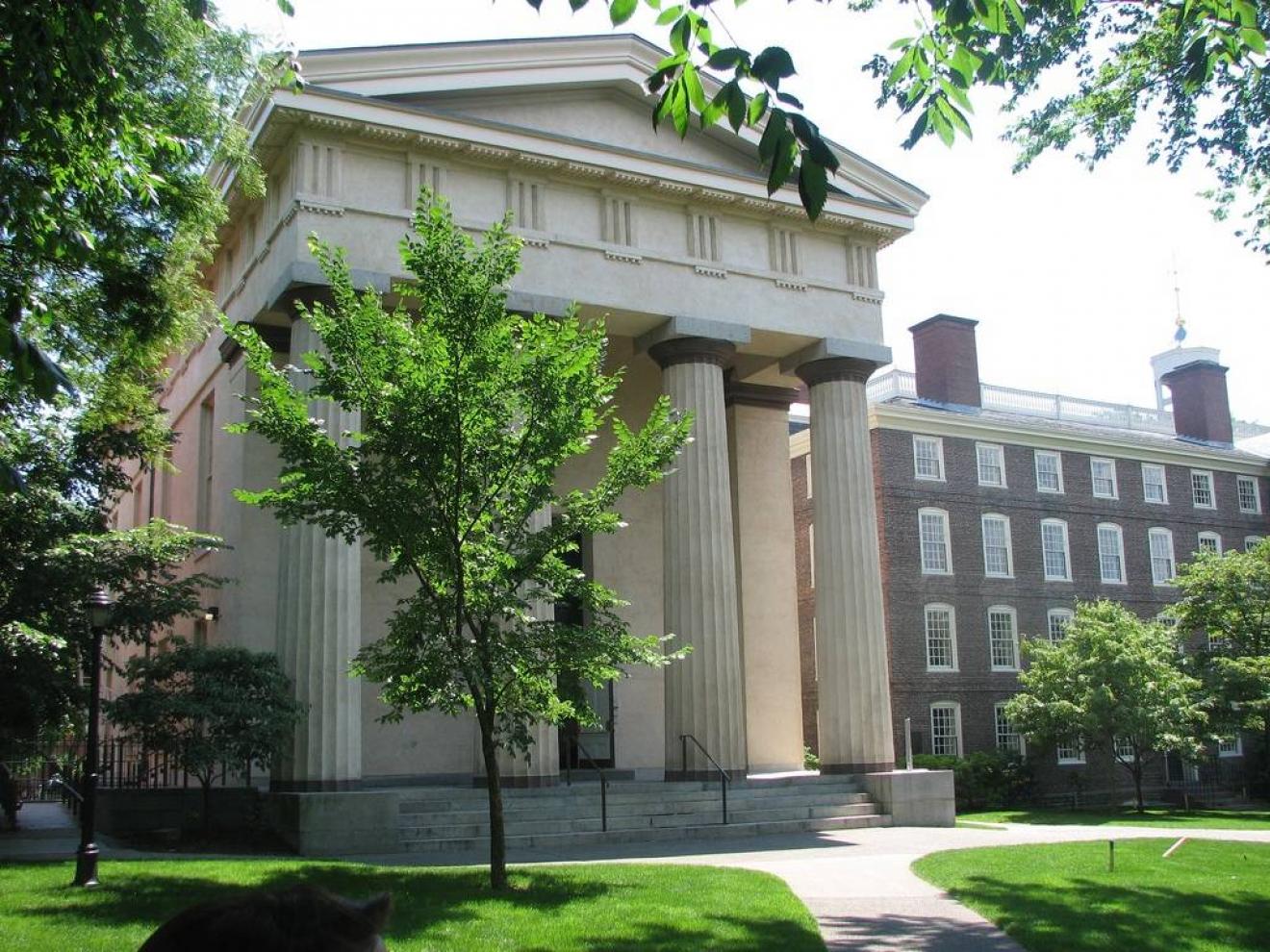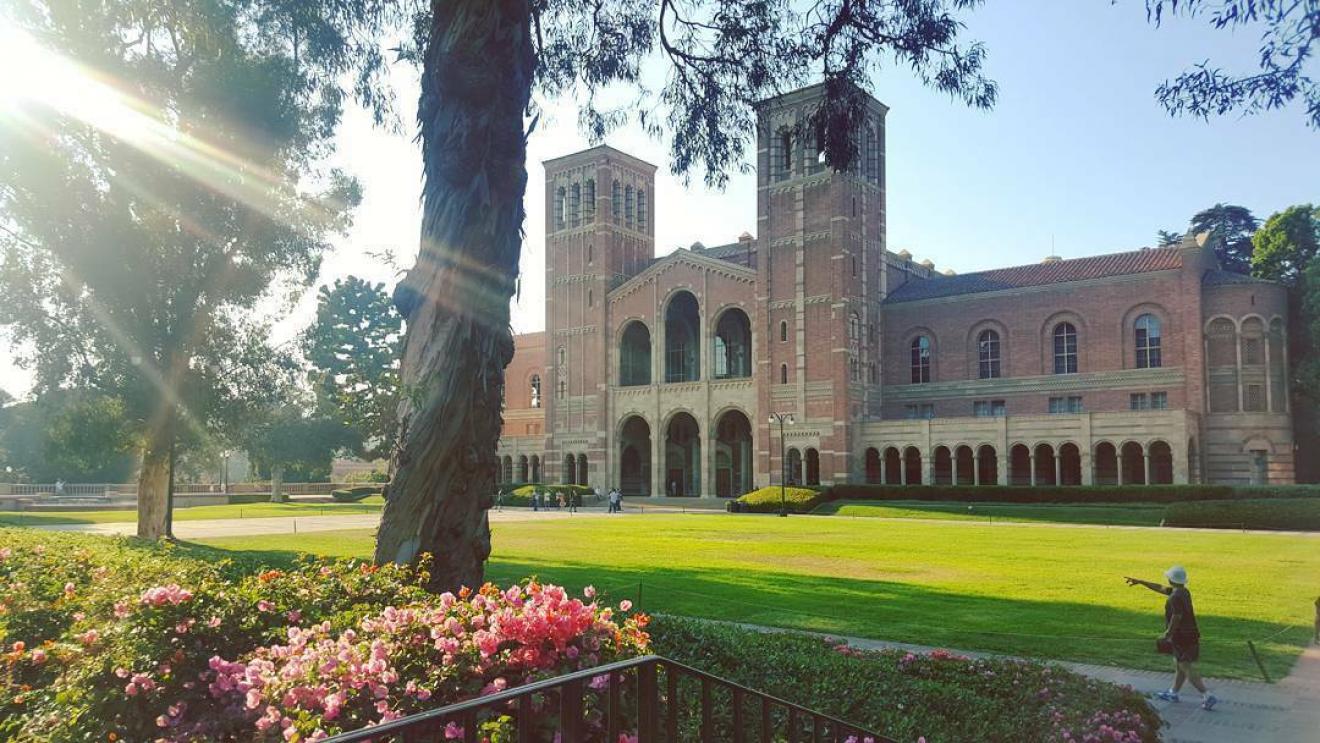Best Archeology and Paleontology colleges in the U.S.
Maybe you were obsessed with dinosaurs as a kid. Or, perhaps, you had dreams of becoming the next Indiana Jones. If you're interested in the fascinating study of the ancient past or the material culture of the more recent past, an archaeology degree could be right for you.
Throughout this page, we dig into (see what we did there?) what you can expect from an archaeology degree, what you'll learn, and what to know about the college admissions process. Additionally, we spotlight ten of the best archaeology schools in the United States.
Best Archeology and Paleontology colleges in the U.S. for 2026

Brown University's Joukowsky Institute for Archaeology offers both undergraduate and graduate archaeology programs and stands out as our top archaeology school. This elite institution dates back to 1764, and archaeology students are encouraged to develop skills beyond foundational archaeology coursework. Students choose a concentration in areas like Egypt, the ancient Mediterranean, or the Near East.
The University of California at Berkeley is the state's flagship public institution and offers three archaeology and paleontology degrees. Established in 1868, Cal-Berkeley students have access to an undergraduate program in anthropology and graduate programs in archaeology. Cal student research currently takes place across the globe.


Established in 1839, Boston University is a private research institution that's home to both undergraduate and graduate archaeology courses. Alongside more traditional academic pathways, BU also offers a 4+1 archaeology track that allows students to complete their bachelor's and master's degrees in just five years.
The University of Missouri at Colombia is the Show Me State's flagship institution. Also known as Mizzou, the school was established in 1839 and offers both undergraduate and graduate-level archaeology programs. Undergrads can choose from degrees in ancient Mediterranean studies, religious studies, and Latin and Greek. Additionally, master's and PhD programs are available.

The University of California-Los Angeles—or UCLA—is a public research institution that was founded in 1881. UCLA offers standout graduate archaeology programs and confers both master's and PhDs. Throughout their time at UCLA, students hone both practical and theoretical skills while taking an interdisciplinary approach.
Tufts University is a Boston-based private institution that plays home to both bachelor's and master's degrees in archaeology. This interdisciplinary program pulls from foundational archaeology courses while introducing relevant topics in the arts, humanities, and natural sciences. Some core requirements include topics such as classical archaeology, prehistoric archaeology, and earth and ocean sciences.
Based in Ithaca, New York, Cornell University is an Ivy League school that was established in 1865. Cornell offers both Bachelor's and Master's in Archaeology and a PhD in the History of Art and Archaeology. Alongside foundational coursework, students can work with faculty who specialize in anthropology, classics, earth sciences, and historic preservation.
Dickinson College is a private liberal arts institution based in Carlisle, Pennsylvania. Established in 1773, Dickinson is home to one of the few pure archaeology programs available to undergraduate students. Undergraduate degree-seekers can choose between the following two specialization areas, and students gain extensive hands-on experience through internships or summer excavation fieldwork.
- Mediterranean archaeology and art
- Archaeology, anthropology, and the environment
Southern Adventist University offers 5 Archeology and Paleontology degree programs. It's a small, private not-for-profit, four-year university in a large suburb. In 2023, 2 Archeology and Paleontology students graduated with students earning 2 Bachelor's degrees.
Founded in 1909 as part of the University of Wisconsin network of schools, UW-La Crosse is a public institution that offers BS and BA Degrees in Archaeology. Throughout this program, students establish foundational skills through classroom work and field experiences. Alongside core requirements, students supplement archaeology coursework with minors in earth sciences, linguistics, and history.
Top schools offering Archeology and Paleontology degrees in the U.S.
Archeology and Paleontology
What is Archeology and Paleontology?
And if you’re looking for a literal answer, here is the actual definition of Archaeology. According to the Society of American Archaeology, archaeology is the "study of the ancient and recent human past through material remains." Archaeology is an expansive field that includes specializations, including bioarchaeology, zooarchaeology, paleoethnobotany, and underwater archaeology.
Archeology and Paleontology Degree Overview
An archaeology degree is an academic program where students study human history and prehistory by exploring material culture and artifacts. These programs cover an array of topics, including excavation techniques, artifact analysis, cultural resource management, and historical interpretation. Graduates of these programs can pursue careers such as archaeological research, cultural heritage management, museum curation, and academic teaching and research.
What to Expect as an Archaeology Major
While archaeology programs vary, you can expect to study the human past by analyzing things like artifacts, architecture, and landscapes. Throughout your program, you'll become familiar with various research methods, scientific techniques, and theories used in archaeological study. We take a close look at what you can expect from your archaeology degree below.
Types of Archaeology Classes
As you journey through an archaeology program, you'll likely encounter a range of classes pulled from various academic areas. Throughout your archaeology program, you'll complete a mix of general education and major requirements before graduation. Here are some courses that you can expect to take as an archaeology major:
- Archaeological Theory
- World Archaeology
- Field Archaeology
- Material Culture Studies
- Archaeological Science and Methods
- Art and Archaeology
- Archaeology of Ancient Civilizations
- Archaeology of Human Evolution
- Cultural Anthropology
- Geographic Information Systems (GIS) in Archaeology
These courses will inevitably vary between schools, but they typically cover topics in archaeological research, history, and science. Additionally, archaeology students commonly take elective courses in fields like anthropology, geology, and history.
Skills Learned in an Archaeology Degree Program
As an archaeology major, you'll hone a set of skills that are applicable to both archaeology and other professional and academic areas. We spotlight some essential skills you'll develop below:
-
Analytical and Critical Thinking—Archaeology requires the ability to analyze and interpret complex data and evidence.
-
Research Methods—Throughout your major, you'll learn how to conduct and evaluate research, collect and analyze data, and use the scientific method.
-
Writing and Communication—Research has to be presented, and you'll learn to write clearly and effectively while developing presentation and public speaking skills.
-
Attention to Detail—Archaeology involves careful attention to detail, especially regarding the documentation and analysis of artifacts and other evidence.
-
Teamwork—Many archaeology programs involve fieldwork and group activities, and you'll be required to work in a collaborative environment.
-
Technical Skills—Archaeologists working in the field use tools and equipment such as GPS, surveying instruments, digital imaging technology, and laboratory equipment.
Graduates with an archaeology degree typically develop a set of skills vital to numerous careers in areas such as academia, cultural resource management, museums, and natural resource consulting.
How Long Does it Take to Get an Archaeology Degree?
The length of time it takes to earn your archaeology degree varies depending on specific program requirements and various personal factors. Educational history is a significant determining factor, as those with an associate degree or extensive higher education experience can graduate more quickly. Additionally, your graduation timeline is impacted by your status as a full-time or part-time student. Finally, some online programs offer accelerated tracks, allowing you to complete degree requirements more quickly than traditional in-person options.
Archaeology Degree Specializations
Archaeology is a broad field that encompasses multiple areas of specialization. Keep reading as we spotlight some common specialization areas:
- Cultural Archaeology
- Environmental Archaeology
- Historical Archaeology
- Archaeometry
- Bioarchaeology
- Archaeological Conservation
- Public Archaeology
These are just a few examples of the specialization areas available to students. When evaluating prospective schools, seek a program that mirrors your academic and career goals.
Next Steps to Get Started in an Archaeology Program
If you've decided that an archaeology program is right for you, you'll want to consider the next steps in the process. Here are some steps to consider:
-
Apply—The college application process can feel daunting, but if you're prepared, it's pretty manageable. Be sure to complete your application fully as any omissions can impact the admission process.
-
Submit the FAFSA—The Free Application for Federal Student Aid is an essential part of the admission process and has the potential to help offset the cost of school through loans, grants, work-study programs, and scholarships.
-
Enroll—Once you've gained admission, it's time to enroll. Before your first semester, you'll also hammer out your first-semester schedule.
-
Study—Whether online or on-campus, college can require some rigorous work.
-
Internship—Completing an internship in your field is a great way to gain hands-on experience while building your professional network.
Admissions Requirements for Archaeology Degree Programs
Admissions requirements inevitably vary between schools, but there are some standard requirements and materials that you can expect. We spotlight some standard admission requirements below:
-
High School Diploma or Equivalent: Those eligible for a bachelor's degree program must hold a high school diploma or GED.
-
Official Transcripts: You'll be asked to submit official transcripts from high school or from any previously attended colleges.
-
Minimum GPA: This can vary, but many schools require a GPA that hovers around 3.0. That said, some schools accept individuals with a GPA greater than 2.0.
-
Application and Fees: In addition to submitting a fully-completed online application, you'll also need to pay any fees associated with the application.
-
Letters of Recommendation: Some schools ask for recommendation letters. Common letter writers include employers, coaches, teachers, counselors, and faith leaders.
-
Personal Statement: This is a chance to set yourself apart from your fellow applicants and tell your story while discussing academic and career goals. What makes you a good candidate?
As you search for prospective schools, be sure to note the specific admission requirements for each program. Additionally, if you have any questions, it's a good idea to reach out to admissions professionals.
Certificate in Archeology and Paleontology
While certifications aren't necessarily required when beginning your archaeology career, professional organizations like the Register of Professional Archaeologists and the Society for American Archaeology do offer certification programs that highlight the expertise and professionalism in the field. Additionally, professional organizations often offer continuing education options that allow archaeologists to stay current with new technologies, techniques, and research.
Those pursuing a career in archaeology may also want to consider specialized training through graduate programs. Advanced degrees in archaeology allow students to hone research methods while offering specialization in vital skills in archaeological conservation, GIS mapping, and scientific analysis techniques.
Earning an Online Archeology and Paleontology Degree
While most archaeology programs are not exclusively online, many schools offer online options for classes that don't require extensive hands-on work and lab experiences. It's not uncommon for students to complete general education classes online while completing major coursework on campus.
How Long do Online Courses Take to Complete?
The duration of online courses can vary depending on the program, class, and institution. Some classes align with the traditional semester schedule, while others can be completed in just eight weeks. Students pursuing an accelerated degree can expect a more condensed set of classes. Before enrolling in an online program, be sure to review program requirements and speak with administrators or faculty members to gain a clear understanding of program scheduling and workload.
Archeology and Paleontology Career and Salary Overview
An archaeology degree opens up careers both within the field of archaeology and in related fields. In addition to careers as an archaeologist, graduates commonly secure jobs as museum curators, historic preservationists, government consultants, and in academia. We take a deeper dive into the career options for archaeology graduates below.
Archaeology Salary and Career Information
While archaeology isn't known for offering a foundation for especially lucrative careers, graduates do have access to growing careers that offer above-average salaries. Archaeologist jobs are projected to grow by 6% over the next decade, while jobs for museum curator positions may grow by as much as 12% over that same period. Like other careers, salaries grow significantly alongside experience, specializations, and graduate-level degrees. Check out salary and job growth data for archaeology graduates below.
Archaeology Career Paths
|
Career |
Salary |
Projected Job Growth (2019-2029) |
About the Position |
Archaeologist |
$61,910 |
6% |
Archaeologists utilize training to explore, analyze, and preserve materials from the past. These professionals can work in both the public and private sectors and often utilize specialized training. |
Museum Curator |
$60,110 |
12% |
In addition to various administrative tasks, these professionals often play a significant role in the acquisition and presentation of historical materials. |
Postsecondary Teachers |
$79,640 |
12% |
Whether at a college or university, these instructors utilize their advanced training to teach various college-level courses. |
Source: BLS
Archeology and Paleontology FAQ
List of all Archeology and Paleontology colleges in the U.S.
| School | Average Tuition | Student Teacher Ratio | Enrolled Students | |
|---|---|---|---|---|

|
Brown University Providence, RI | 12 : 1 | 11,516 | |

|
University of California-Berkeley Berkeley, CA | 23 : 1 | 45,699 | |

|
Boston University Boston, MA | 19 : 1 | 36,624 | |

|
University of Missouri-Columbia Columbia, MO | 21 : 1 | 31,013 | |

|
University of California-Los Angeles Los Angeles, CA | 23 : 1 | 46,678 | |











